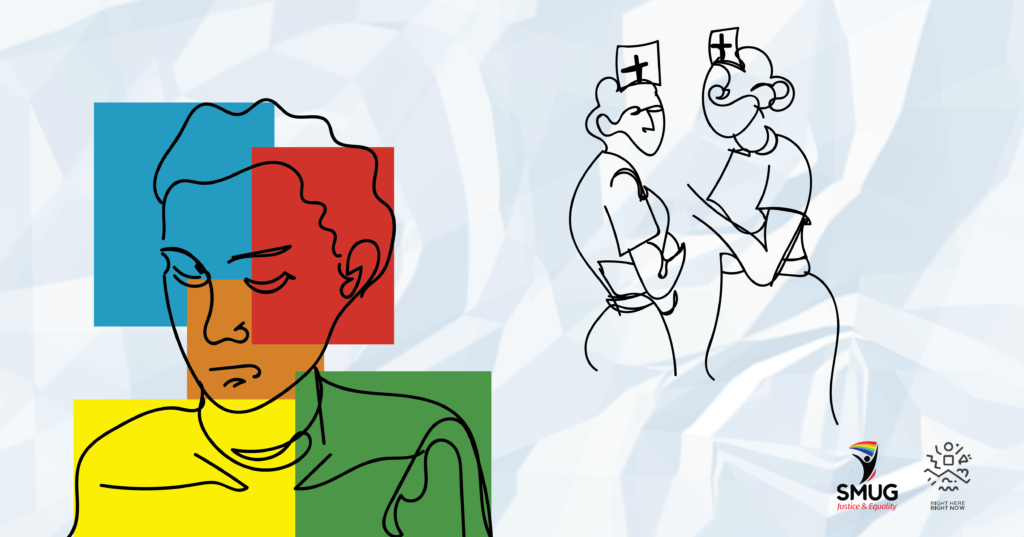As advocates intensify the demand for sexual and reproductive health rights (SRHR) in Uganda, opposition groups, evangelical agents and patriarchal leaders fight back — often berating rights groups with among others, the claim of SRHR intent to spread homosexuality, which goes against our culture.
Our culture, as referenced here is of course a flawed generalization of a Ugandan people for two simple reasons: LGBT persons with citizenship to this country are for all intents and purposes, Ugandan – therefore a part of this homogenized culture. Secondly, aside from a deeply homophobic culture that has been cultivated and fueled by colonial religious faiths and the State alike, Ugandans have not collectively agreed to set back access to health services, which is what groups opposed to SRHR are doing.
So yes, perhaps only a deeply homophobic culture would go to the lengths of blocking health access in an attempt to hold onto the prejudice against a group of people who belong to that same culture.
Uganda’s inherited colonial laws criminalizing consensual same-sex relations under the Penal Code Act, 120 section 145 are still operational and occasionally, debated with the aim to further criminalize and strip sexually minoritized Ugandans of their humanity. The results of this are encrusted forms of violence based on sexual orientation and gender identity or expression, particularly in the form of societal stigmatisation, homophobic violence, and religious discrimination.
With LGBTQIA+ Ugandans already fighting for their lives against this violence, state criminalization of their sexualities renders their sexual and reproductive health also illegal – taboo even. Sexual and reproductive health then takes on as another layer for struggle. In our deeply religious society, SRH services are interlinked with sexuality. Medical professions are known discriminate based on sexual orientation, as evidenced in this needs and quality of services assessment of sexual and reproductive health for LGBTI persons report; mocking and extorting patients, sometimes even sending them away. As a result, sexually minoritized persons are left to access healthcare services through underground channels, sometimes opting out all together.
Ironically, the 1995 Uganda Constitution lists access to health among the justiciable rights under Article 8A, assigning this obligation to promote and protect to the Government of Uganda. Several other international and regional instruments such as the African Charter on Human and Peoples Rights impose a similar obligation.
Uganda and other States are further obligated under the Convention on the Elimination of All Forms of Discrimination Against Women (“CEDAW”) and other international human rights instruments to take all appropriate measures to eliminate discrimination against women. In addition, international human rights bodies and experts have affirmed that ‘the principle of nondiscrimination prohibits unequal treatment based on sexual orientation.’ Unfortunately, the State has failed to uphold these responsibilities to this community of Ugandans.
Realizing sexual and reproductive health and rights is necessary for everyone to stay healthy, to participate in education, and all facets of life, free from violence. Organisations like Sexual Minorities Uganda among others continue to actively document the experiences of the LGBT community. Among these are cases where they are denied healthcare services based off how they look, and Transgender persons misgendered and forced to take on the gender assigned at birth before they receive services.
More SRHR activists and organisations should actively seek to document experiences through an inclusive lens, and then tailor solutions to fit the unique needs of the different sexually minoritized people. In response to opposition groups whose message against SRHR is hinged on further stigmatizing sexually minoritized people, it is crucial that they stress that these rights are for all Ugandans, including LGBT Ugandans. More importantly, they should invest in capturing as much data on the inaccessibility to sexual and reproductive health services for the LGBTI community. It is with evidenced research and statistics that we can collectively task the Government to implement it’s legal obligations to uphold the reproductive health rights of all Ugandans, including LGBTI persons.
